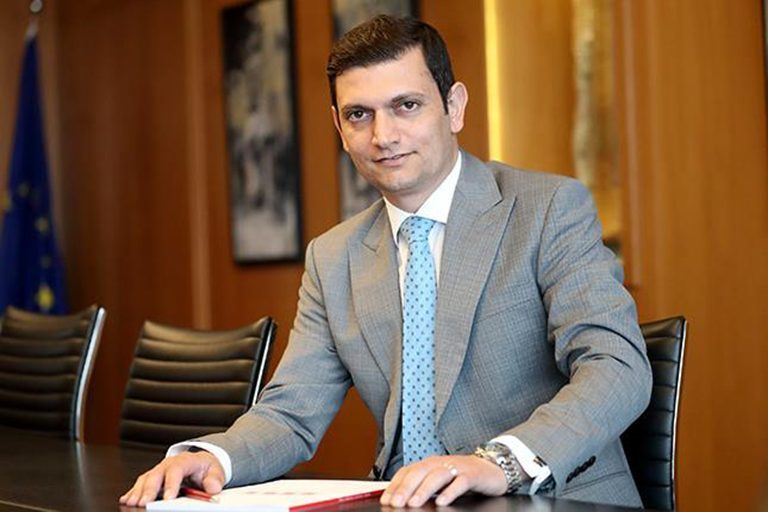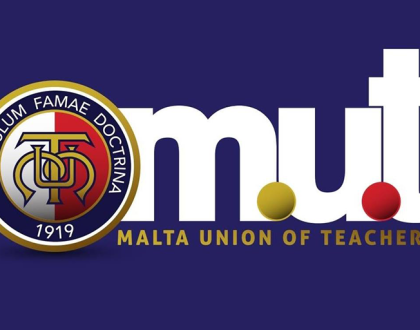Ex-MGA CEO Loses Appeal in Malta AML Leak Case

In a high-profile legal battle, former Malta Gambling Authority (MGA) CEO Heathcliff Farrugia has officially lost his appeal against convictions related to leaking confidential information. Farrugia’s downfall is tied to revelations regarding an anti-money laundering (AML) inspection at Casino Malta, a case that has captured the attention of Malta’s gambling and legal sectors.
The judgment from Malta’s Magistrates Court, which was delivered in May 2024, found Farrugia guilty of three out of four charges. These charges stemmed from his communication with Tumas Gaming CEO Yorgen Fenech, a businessman who is also implicated in the murder of journalist Daphne Caruana Galizia. This article will explore the background of the case, the court’s findings, and the broader implications of Farrugia’s actions on the MGA and the Maltese gambling industry.
Background: The AML Inspection Leak
At the heart of the case lies a September 2019 conversation between Farrugia and Fenech. According to police investigations, Farrugia disclosed confidential details regarding an upcoming AML inspection at Casino Malta to Fenech, who owned Tumas Gaming, a competing business. Farrugia's communication with Fenech raised eyebrows due to Fenech's controversial reputation. Fenech, a Maltese business magnate, has been implicated in the murder of investigative journalist Daphne Caruana Galizia, making any interaction with him especially sensitive.
Court documents reveal that in the 2019 conversation, Farrugia informed Fenech about the Casino Malta AML inspection and further suggested that he would try to delay a report on a compliance inspection of Fenech’s own casino operation. These revelations triggered an internal investigation and eventually led to Farrugia’s indictment.
The court found Farrugia guilty of leaking confidential information entrusted to him in his role as CEO of the MGA, which regulates Malta’s lucrative gambling industry. His actions were deemed a breach of the responsibility he held as the head of an authority tasked with enforcing compliance and ethical standards.
Court Findings and Conviction
In May 2024, Farrugia was convicted on three out of four charges. While he was not sentenced to imprisonment, he received a conditional discharge. This means that Farrugia must remain free of any further legal infractions for a set period, or he will face further penalties. Additionally, he was ordered to cover the costs incurred by the court expert, Keith Cutajar.
The central charge that led to Farrugia’s conviction was that he had leaked a “secret that was entrusted to him.” Under Maltese law, such breaches of confidentiality are considered a serious offense, especially when they involve highly regulated industries like gambling.
The court also found that Farrugia had shown intent to influence the course of the AML inspection, which could have had significant ramifications for Casino Malta and Tumas Gaming. His attempt to slow down a compliance report for Fenech’s operations raised concerns about the integrity of the MGA’s regulatory oversight.
The Appeal and Farrugia’s Defense
In June 2024, Farrugia submitted an appeal against his conviction, challenging several aspects of the court’s findings. Farrugia’s defense rested on a few key arguments:
Definition of a ‘Secret’: Farrugia argued that Maltese law does not clearly define what constitutes a ‘secret’ in the context of regulatory information. His legal team claimed that the term was too vague and did not apply to the details he shared with Fenech.
Intent: Farrugia insisted that there was no malicious intent behind his communication with Fenech. He argued that he was merely trying to calm the casino owner down in light of the impending AML inspection. According to Farrugia, his communication was intended to maintain a professional relationship with Fenech, not to subvert the regulatory process.
No Proof of Prior Knowledge: Another crucial point in Farrugia’s defense was that there was no formal evidence proving that he had prior knowledge of the AML inspection. He further suggested that Fenech may have already been aware of the inspection, thus nullifying the argument that Farrugia’s message was a leak of confidential information.
Farrugia’s defense painted a picture of a CEO who felt he needed to balance his duties as a regulator with maintaining good relationships with operators in Malta’s gambling sector. As he explained, he “felt the need to reach a balance between being the regulator and remaining close with operators.” However, the court ultimately rejected these arguments.
The Court’s Ruling on Appeal
On June 12, 2024, the Maltese court of appeals upheld the original conviction, dismissing Farrugia’s arguments. The court reaffirmed that the information Farrugia shared with Fenech was indeed confidential and constituted a breach of trust. The appeal’s dismissal signified the court’s unwillingness to accept the argument that such breaches could be justified by the need for close relationships between regulators and operators.
The court also noted that regardless of Farrugia’s intentions, his actions undermined the integrity of the MGA. As the CEO of a regulatory body, he had a legal and ethical obligation to maintain the confidentiality of sensitive information, especially in matters related to AML inspections. The ruling emphasized the importance of transparency and accountability in regulatory operations.
Implications for Malta’s Gambling Sector
Farrugia’s case has broader implications for the MGA and Malta’s gambling industry as a whole. The MGA has long been seen as one of the most reputable gambling regulators in Europe, overseeing a sector that contributes significantly to Malta’s economy. However, this case has raised questions about the regulatory body’s ability to enforce compliance standards impartially.
The revelation that the MGA’s CEO was communicating with a controversial figure like Fenech, especially about sensitive regulatory matters, could damage the MGA’s credibility. It may also prompt calls for greater oversight of the authority itself, ensuring that regulatory officials are held to higher standards of accountability.
Moreover, Farrugia’s case could lead to stricter regulations and increased scrutiny of the relationships between gambling operators and regulators. The Maltese government may be forced to consider reforms that prevent conflicts of interest and ensure that regulatory decisions are free from outside influence.
The Role of Yorgen Fenech
Yorgen Fenech’s involvement in this case adds an additional layer of complexity. As the owner of Tumas Gaming, Fenech was a key player in Malta’s gambling industry. However, his alleged involvement in the murder of Daphne Caruana Galizia has made him a deeply controversial figure in Malta.
The messages between Farrugia and Fenech, revealed during Fenech’s arrest, provided the evidence needed to convict Farrugia. Fenech’s association with both the gambling industry and a high-profile murder case highlights the delicate nature of relationships between business leaders and regulators. It also underscores the need for regulatory bodies like the MGA to maintain strict boundaries and avoid any appearance of favoritism or corruption.
Conclusion: A Cautionary Tale for Regulators
The conviction and subsequent failed appeal of Heathcliff Farrugia serve as a stark reminder of the responsibilities that come with leadership in regulatory bodies. As the former CEO of the MGA, Farrugia was entrusted with overseeing an industry that requires a high level of transparency, fairness, and ethical conduct. His failure to maintain the confidentiality of sensitive information not only damaged his career but also risked undermining the credibility of the MGA itself.
While Farrugia’s case is an isolated incident, it raises important questions about the nature of regulatory oversight in Malta’s gambling sector. As the country continues to serve as a hub for international gambling companies, ensuring the integrity of its regulatory framework will be critical to maintaining its reputation on the global stage.
Frequently Asked Questions
What were the charges against Heathcliff Farrugia?
Farrugia was charged with leaking confidential information related to an upcoming AML inspection at Casino Malta to Tumas Gaming CEO Yorgen Fenech.
Why did Farrugia lose his appeal?
The court rejected Farrugia’s defense, reaffirming that his actions constituted a breach of confidentiality and undermined the integrity of the MGA.
Who is Yorgen Fenech?
Yorgen Fenech is a Maltese businessman and owner of Tumas Gaming. He is also implicated in the murder of investigative journalist Daphne Caruana Galizia.
What was the significance of the messages between Farrugia and Fenech?
The messages provided evidence that Farrugia had leaked information about a regulatory inspection to Fenech, leading to Farrugia’s conviction.
What was Farrugia’s defense in the appeal?
Farrugia argued that the term ‘secret’ was not clearly defined by law and insisted there was no malicious intent in his communication with Fenech.
How does this case affect the MGA’s reputation?
The case raises concerns about the integrity of the MGA and its ability to regulate the gambling industry impartially, potentially damaging its credibility.
What are the potential consequences for Malta’s gambling sector?
The case may lead to stricter regulations and increased scrutiny of the relationships between gambling operators and regulators.
What role did AML inspections play in this case?
The case revolved around Farrugia leaking information about an upcoming AML inspection at Casino Malta, which was of interest to Yorgen Fenech.
What was the court’s reasoning for upholding Farrugia’s conviction?
The court emphasized that Farrugia’s actions breached the trust placed in him as MGA CEO and undermined the transparency of the regulatory process.
Paula Nancy
Hello and Welcome to my profile. I'm a UK based entrenched full-time Blogger, Journalist, columnist and a certified writer with many years of sound writing experience. If you need a high-quality and original content, I'm here to provide you with the best writing services.
Recommended Posts

MUT’s Stand on World Teachers’ Day
October 5, 2024

Sportingtech Boosts Security with Continent 8
October 4, 2024

Legal Win for Malta’s Citizenship Program
October 4, 2024


